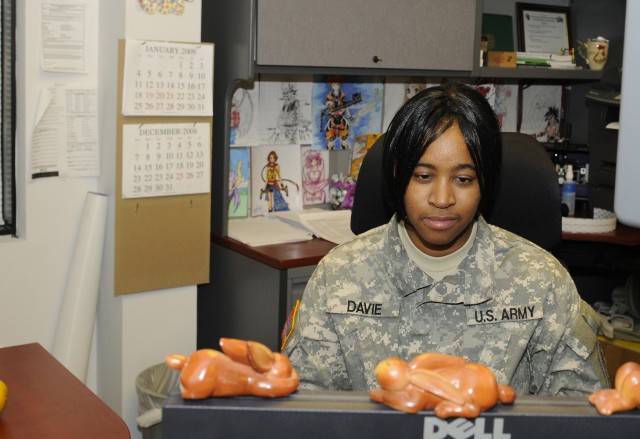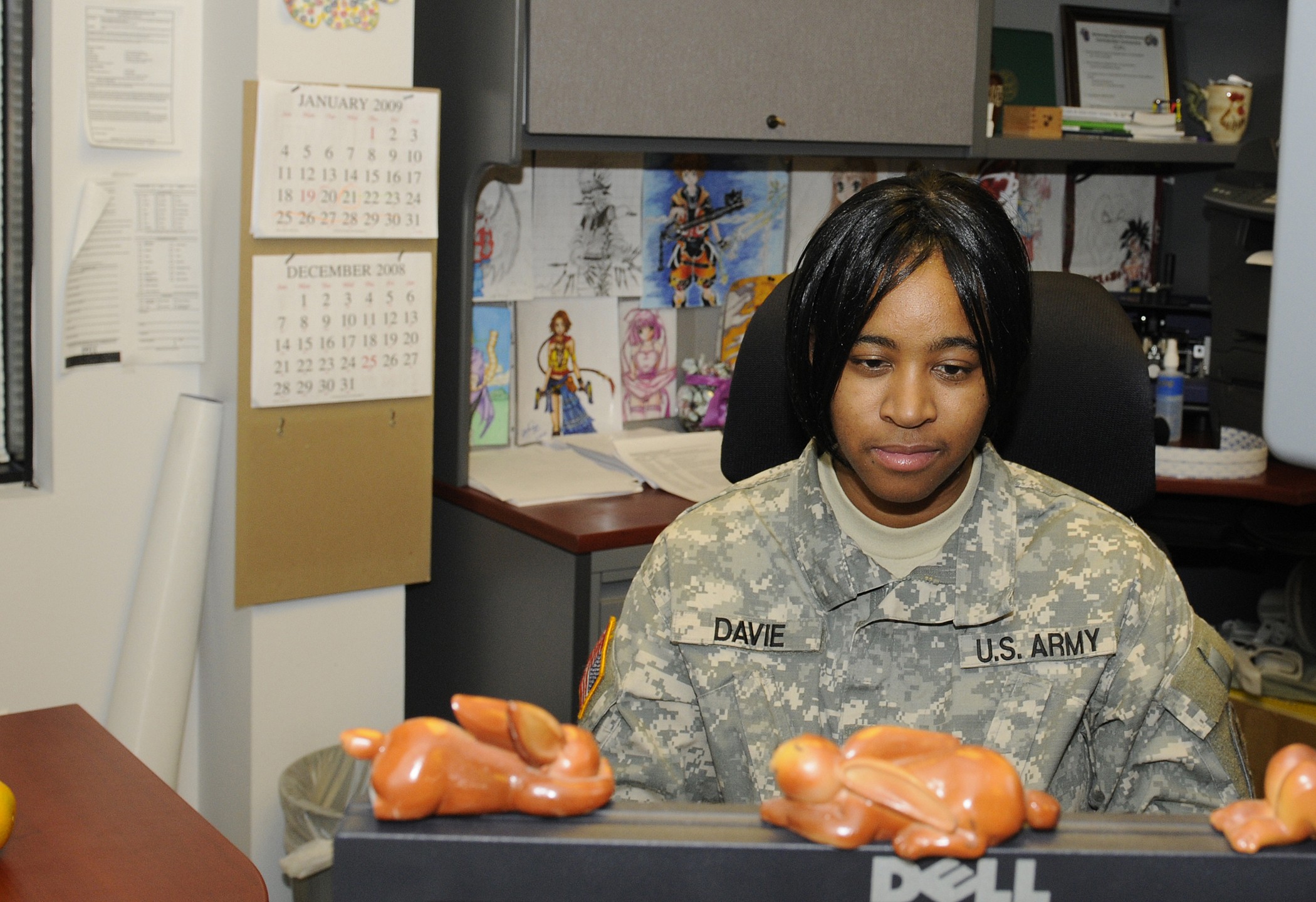PETERSON AIR FORCE BASE, Colo. - The story of ethnic and cultural diversity in the U.S. Army can be traced back to the Revolutionary War and throughout every war the United States has taken part in since.
This is no stunning fact; however the treatment of Soldiers with diverse backgrounds has changed drastically since the Civil War when black Soldiers literally fought for their freedom as human beings versus disposable property. That is when they were allowed to fight; in many cases they were relegated to cooking or burial duty instead of being allowed the honor of bearing arms on their own behalf.
Although Staff Sgt. Paula Davie, the paralegal noncommissioned officer with the 100th Missile Defense Brigade headquartered at Peterson Air Force Base, Colo., obviously never fought in the Civil War, she has an appreciation for the Army's recognition of diversity since the beginning of her career.
"I joined the Michigan Army National Guard while I was still in high school in 1989 and shipped off to basic in late 1990," said Davie. "I didn't think about ethnicity too much when I joined. It always seemed like a very diverse organization right from the start."
Davie attended basic training at Fort Jackson, S.C., where, she said, "There were many African Americans there, as well as other ethnicities, so I didn't think about it much. I also grew up in Michigan where it is quite diverse, so it was normal for me."
The Army has put in place a very robust Equal Opportunity program stemming from mistreatment of not only different races, but genders and belief systems as well, to call a halt such treatment of its Soldiers. Davie is the Equal Opportunity NCO for the 100th MDB, a multi-component unit staffed largely by active Guard Soldiers.
"I have never felt in my career like I wasn't a part of the Army team," Davie said. "The Army is good about the whole 'race' thing; I'm sure there are Soldiers out there who can create some problems, but I don't think it's race related - I think it is people related."
To show throughout all commands Army wide that recognition of such an issue within its ranks is important, the Army goes beyond just hanging posters in the hallways and making announcements in formations.
"The Army is getting better at acknowledging cultural and ethnic holidays and it continues to point out areas for growth," said the African-American NCO.
"We just need to get the word out there so that there is participation in all events and the commands need to show support and let their Soldiers participate."
It is obvious that not only the United States Military as a whole has come a long way regarding race over the years but society has transformed, too.
"I think with our newly elected commander in chief being an African-American it's a good sign because it shows that America as a whole is really starting to look beyond race and looking at who is going to be better for the job," Davie said.
"A lot of African-Americans supported President Obama, however even with all the African-Americans in this country, they couldn't have done it alone ... it took all races," she said.
Although Davie believes there is room for improvement with the programs which the Army puts out there for all cultures and ethnicities, she believes that the strides taken so far are important for multiple reasons.
"It's very important that we openly celebrate things like black history month - for one, it shows the Army's efforts to bring different ethnicities together as well as become more diverse, and it also gives everyone a chance to celebrate their own culture," Davie said.
"We have gone as far as changing our MREs to not having pork, all the way to accepting Muslims and their prayer habits.
"It has just become easier to do things you would as a normal person," said Davie.
The African-American sergeant truly believes in the programs set up by the Army and is a proud supporter of them.
"With all units there is a realization that there are events out there, but it is ultimately up to the command to be supportive in order to make them work. I mean if there is an event in Hawaii, my unit should let me go ... no, just kidding ... but all events should be open to for all Soldiers to attend," said Davie with a grin.


Social Sharing